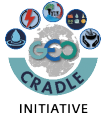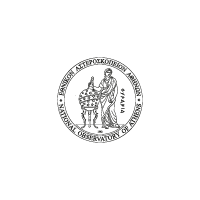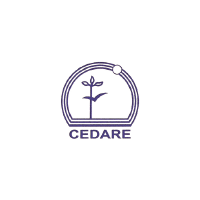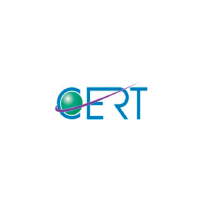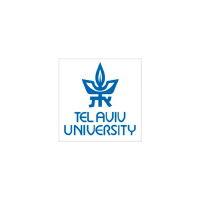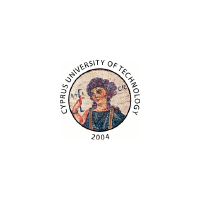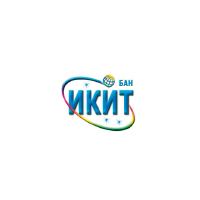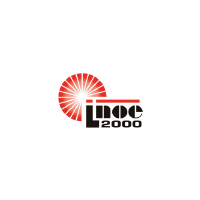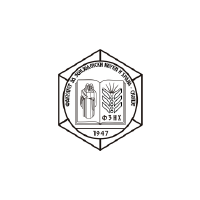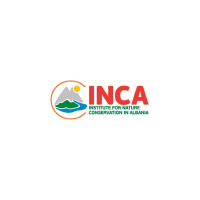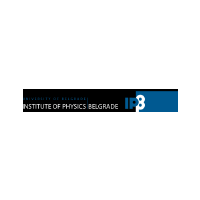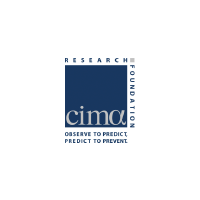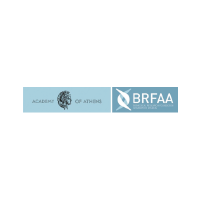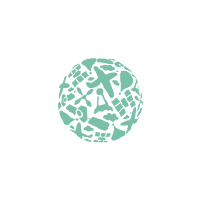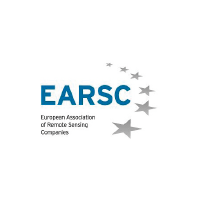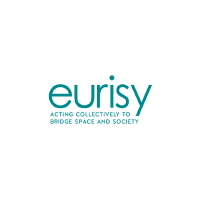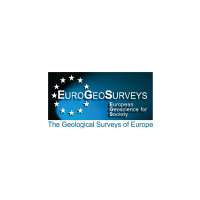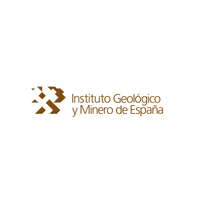Organizacije punopravni učesnici
National Observatory of Athens (NOA)
The National Observatory of Athens (NOA) as Research Centre has a continuous presence in science and education activities at international level, for more than 170 years. It is the first research Institution that was founded in Greece (1842) after the establishment of the modern Greek state (1832). The activities of NOA are organized around 3 Institutes: the Institute for Astronomy, Astrophysics, Space Applications and Remote Sensing (IAASARS, submitting the proposal on behalf of NOA), the Institute for Environmental Research and Sustainable Development (IERSD, participating under IAASARS/NOA), and the Geodynamics Institute (GI). NOA is the Project Coordinator of GEO-CRADLE.
InterBalkan Environment Center (i-BEC)
InterBalkan Environment Center (i-BEC) was founded in 2007 and serves as an international Cluster of new technologies and innovation linking together the public and private sectors for sustainable management of natural resources and protection of the environment. i-BEC acts through a global network in cooperation with governmental organizations, research institutes and the private sector. Within this network, i-BEC provides integrated reliable solutions and services and is actively involved in trans-national exchange and application of knowledge and best management practices overseas, in Europe and the Balkans.
Centre for Environment and Development for the Arab Region and Europe (CEDARE)
The Centre for Environment and Development for the Arab Region and Europe (CEDARE) was established in 1992 as an international organization, with diplomatic status. This was in response to the convention adopted by the Council of Arab Ministers Responsible for the Environment, in 1991 and upon the initiative of the Arab Republic of Egypt, the United Nations Development Programme (UNDP) and the Arab Fund for Economic and Social Development (AFESD).
Telecommunications Research and Studies Centre (CERT)
The Telecommunications Research and Studies Centre (CERT) is a Tunisian Public Enterprise under the auspices of the Ministry of Communication Technologies and Digital Economy operating in the field of communication and space technologies since 1988. The CERT is providing the following services and activities: (a) Research, Development and technology watch; (b) Studies, engineering and expertise; (c) Technical acceptance; and (d) Type approval market control of telecommunication terminals. CERT is a key player in the development of the telecommunications sector and provides a strong support to the regulators and operators in Tunisia and Africa.
Tel Aviv University (TAU)
The Remote Sensing Laboratory (RSL) at Tel Aviv University (TAU) is the leading group in Israel for imaging spectroscopy, soil spectroscopy and remote sensing applications dedicated for soil mapping and environmental monitoring. The laboratory is situated at the Department of Geography and Human Environment, Tel-Aviv University, which is considered as the biggest university country wide.
Cyprus University of Technology (CUT)
The Cyprus University of Technology (CUT) is a public university that was founded in Limassol in 2003 and consists of six faculties. The Remote Sensing and Geo-Environment Research Laboratory (RS Lab) is part of the Department of Civil Engineering and Geomatics of CUT. The RS Lab is member of the Eratosthenis Research Group.
Scientific and Technological Research Council of Turkey Space Technologies Research Institute (UZAY)
The Scientific and Technological Research Council of Turkey Space Technologies Research Institute (UZAY) was founded in 1985, under the framework of a protocol signed between the Middle East Technical University (METU) and UZAY as a publicly funded research institute. UZAY is focused on space and information technologies as system and subsystem level developer and integrator, keeping abreast of latest technological developments. UZAY leads several R&D projects, aiming to take pioneering roles in research communities and to assist the industry in solving technological problems since its establishment.
Space Research and Technology Institute (SRTΙ )
Space Research and Technology Institute (SRTΙ) is independent legal body part of Bulgarian Academy of Sciences (BAS). It was established in 2010 by merging two of the leading institutes of BAS in the field of Space physics, Remote sensing, and Space materials science namely Space Research Institute and Solar-Terrestrial Influence Institute. The activities in Space area started as early as 1969 by establishing a group of Space physics research who evolved in laboratory in 1975 and later in 1987 became an institute.
National Institute of R&D for Optoelectronics (INOE)
The National Institute of R&D for Optoelectronics (INOE) was established in 1996 and is involved in fundamental and applicative research in optoelectronics, analytical chemistry, and high pressure physics. INOE’s activities are divided into six research departments, two certified test laboratories and two legal subsidiaries: the Institute of Analytical Instrumentation Research – ICIA (http://www.icia.ro) and the Hydraulics and Pneumatics Research Institute – IHP (http://www.ihp.ro).
Ss. Cyril and Methodius University (USCM)
The Ss. Cyril and Methodius University (USCM) in Skopje is the first state University in the country, founded in 1949, initially with three faculties. At the moment, the University represents a functional community of 23 faculties, 5 research institutes, 4 public scientific institutions – associate members, 1 associate member – other higher education institution and 7 associate members – other organizations. The Ss. Cyril and Methodius University develops study programmes in all scientific fields – natural sciences and mathematics, technical and technological sciences, medical sciences and health, biotechnical sciences, social sciences, humanities and arts. The participation institution in the project will be the Faculty of Agricultural Sciences and Food (FASF) from Skopje.
Institute of Nature Conservation in Albania (INCA)
The Institute of Nature Conservation in Albania (INCA) is a Non-Governmental and non- profitable organization (NGO), established in July 2000, and registered as a charity by the District Court of Tirana in 16 July 2004. The INCA’s main goal is to facilitate and help the professional capacity building through training and participatory approach, safeguard of environment, conservation of the natural environment treasures and rural development in the country, protection of flora and fauna, the assessment of biodiversity, the management of protected areas, river basin management, raising awareness of the public and policy and decision makers, and undertaking conservation measures when possible and appropriate to protect species and their critical habitats.
Institute of Physics Belgrade (IPB)
The Institute of Physics Belgrade (IPB) currently employs 120 senior researchers from which 80 are doctoral and post-doctoral students. IPB researchers make up 1% of Serbia’s research sector, producing roughly 10% of the country’s scientific output. IPB leads Serbian participation in international projects and collaborations. The majority of these international collaborations are within the European Research Area (ERA). IPB covers an expertise various research areas, organizing the scientific activities through different laboratories.
International Centre on Environmental Monitoring (CIMA)
International Centre on Environmental Monitoring (CIMA) is a nonprofit research organization committed to the promotion and support of scientific research, technological development and training within the fields of hydro-geological risk reduction, forest fires and marine environmental monitoring. CIMA Research Foundation is founded by the Italian Civil Protection Department, the University of Genoa, the Liguria Region (Government of Liguria Region), and the Provincia di Savona (Administration of Savona Province). The Foundation’s aim is to promote scientific research and technical development, high profile engineering and environmental science education. This mission is accomplished through scientific research, technology transfer and high level training services. CIMA is recognized as centre of excellence for civil protection by national regulation. CIMA has established a branch office in Tirana (Albania) with the purpose of strengthening the cooperation activities in the Balkan region.
Biomedical Research Foundation of the Academy of Athens (AOA)
The Biomedical Research Foundation of the Academy of Athens (AOA) is a non-profit institute dedicated to understanding, treating, and preventing human ailments through biomedical research. The Center for Environmental Effects on Health of the Biomedical Research Foundation of the Academy of Athens is addressing both global and regional climate changes in different space and time scales. The Division is collaborating with international Research Institutions (University of Oslo, NASA/GISS, University of Gissen) as well as other Universities and Institutions in Greece. The Division focuses on climate processes at global and local scales through both observational analyses from satellite and surface platforms and climate modelling studies. The Division provides expertise not only on future but also on past and present climate variability, trends and extreme events and their effects on infrastructure on time scales from years to decadal.
InoSens doo (INS)
InoSens doo (INS) is an innovative company (SME), founded as spin-off of the University of Novi Sad with the mission to accelerate the transfer of innovative ICT technologies to the agrifood sector. The value proposition of InoSens builds equally upon technological excellence and business innovation. InoSens is engaged in design and development of sensors, deployment of Wireless Sensor Networks and application of advanced remote sensing techniques for optimizing economic performance and environmental sustainability in agriculture.
European Association of Remote Sensing Companies (EARSC)
EARSC, the European Association of Remote Sensing Companies is a membership-based, not for profit European organization which coordinates and promotes activities of European companies engaged in delivering EO geo-information (or geospatial) services. EARSC’s key goal is to help promote the industry and to help develop the market for these services. EARSC is representing the European providers of geo-information services in its broadest sense creating a network between industry, decision makers and users and covering the full EO value chain from data acquisition through processing, fusion, analysis to final geo-information products & services.
EURISY
EURISY is an NGO founded in 1989 by Hubert Curien. Many in the space community considered Mr Curien “The Father of Ariane”. Members include space agencies or offices in charge of space affairs, mostly in Europe. Eurisy works to bridge space and society. In the last 8 years Eurisy has been carrying out a User Programme. It is designed to engage professional users with satellite services. The programme, (a) raises awareness of satellite applications based on satellite navigation, communication and Earth observation; (b) inventories of users’ needs; and (c) supports take-up of satellite applications. Finally, Eurisy gives feedback to decision-makers on measures to stimulate innovation resulting from space.
EuroGeoSurveys (EGS)
EuroGeoSurveys (EGS) is the organisation of the Geological Surveys of Europe, the national institutions responsible for the geological inventory, monitoring, knowledge and research for the security, health and prosperity of the society. Its mission is to provide public Earth science knowledge to support the EU’s competitiveness, social well-being, environmental management and international commitments. EGS operates on the European scale, working with industry, universities and research centres, and putting its knowledge base at the disposal of all European citizens, institutions and media. In particular, EGS provides a unique, independent, source of scientific expertise and advice to the EU Institutions on all matters related to on-shore and offshore geological resources and/or hazards. With the support of its 37 national members, EGS actively contributed, and still contributes, to a number of EU policy and legislative developments. According to its Statutes, EGS pursues activities that lie exclusively in the public interest or in the interest of public administration and of the European Union.
Physikalisch-Meteorologisches Observatorium Davos and World Radiation Center“ (PMOD/WRC)
The Physikalisch-Meteorologisches Observatorium Davos and World Radiation Center (PMOD/WRC) was founded in 1907. It began operational measurements of the direct solar irradiance in 1909, initiating the world’s longest and still continuing time series of this kind. In addition, began investigating the biological influences of ultra-violet. With its world famous solar and UV radiation measurements PMOD/WRC which has been an internationally recognized center for research in radiation measurements and instrumentation. Since 1926, PMOD/WRC has been part of the SFI private foundation („Schweizerisches Forschungsinstitut für Hochgebirgsklima und Medizin“). In 1971, the PMOD was designated by the World Meteorological Organization (WMO, Geneva) to serve as a World Radiation Center (WRC).
Organizacije partneri “treće strane”
Institute of Geology & Minerals of Spain (IGME-ES)
Royal Centre for Remote Sensing (CRTS)
Institute of Geology & Mineral Exploration (IGME-EL)
Polish Geological Institute (PGI)
National Authority for Remote Sensing & Space Sciences (NARSS)
National Authority for Remote Sensing & Space Sciences (NARSS)
